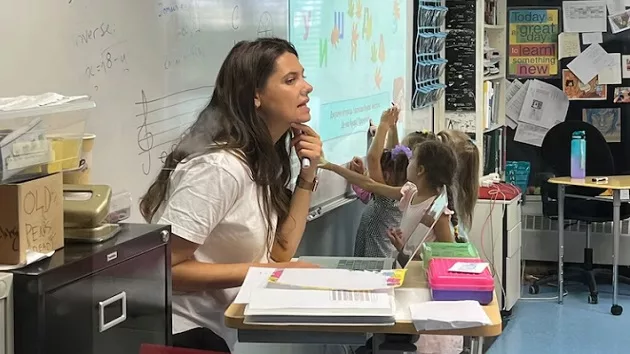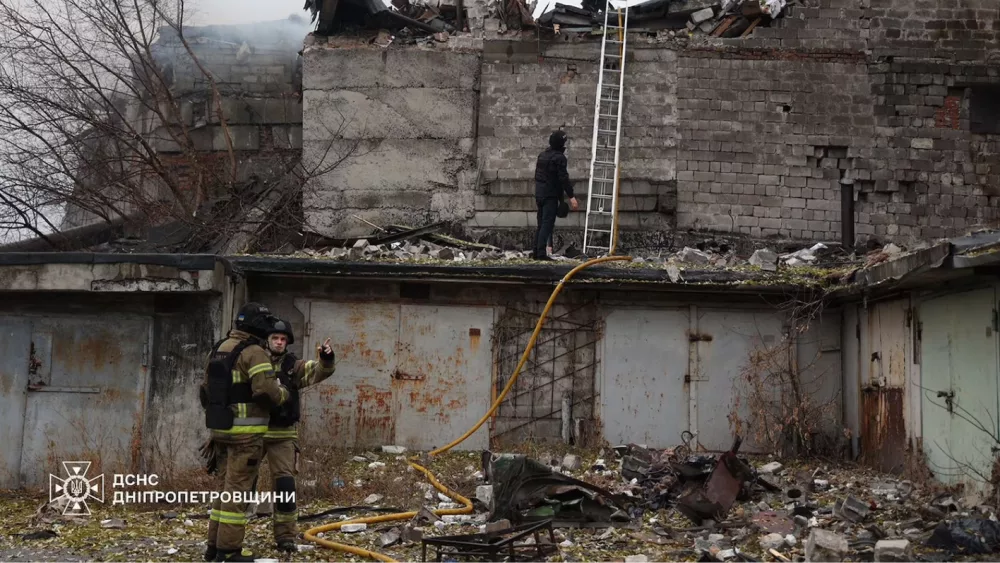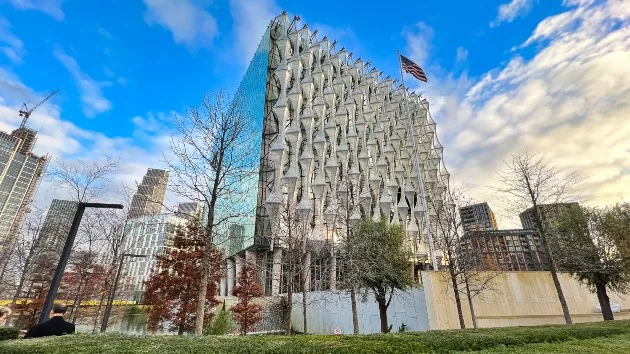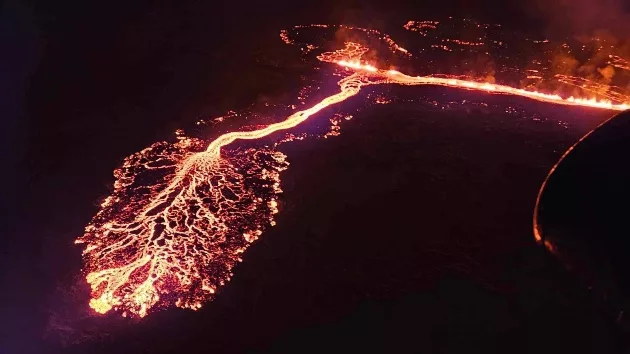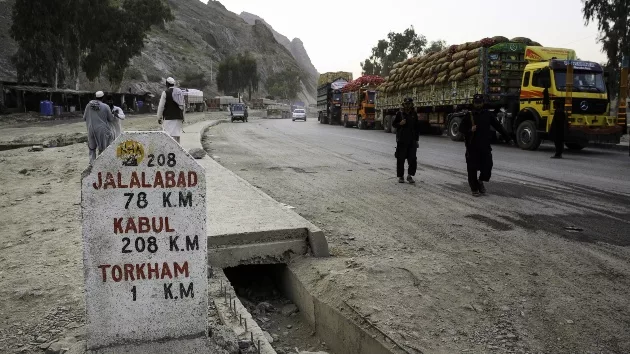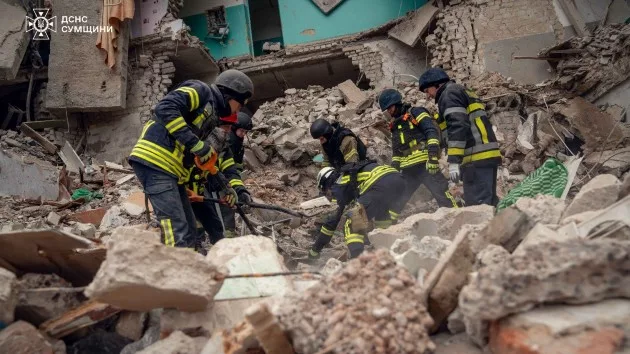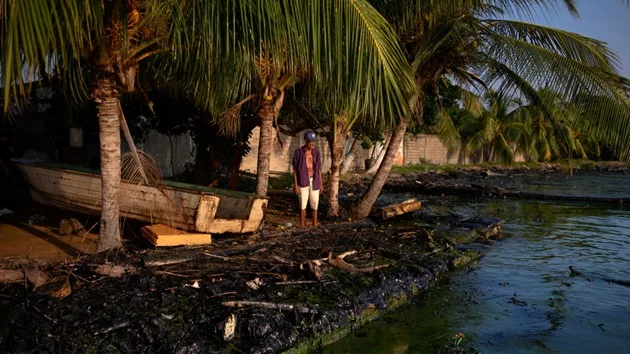
(NEW YORK) — Conservationists in Latin America, home to some of the most important ecosystems in the world, are persisting in their environmental work despite political challenges that can sometimes stand in the way and the dangers they face, multiple experts told ABC News.
Central and South American countries are facing some of the most significant environmental challenges in recent history. Drought is widespread throughout the region — especially in Uruguay, northern Argentina and southern Brazil, according to a 2023 report by the Global Drought Observatory.
In Mexico, water pollution adversely impacts indigenous groups, according to a 2021 paper published in the International Journal of Environmental Research and Public Health. In Brazil, deforestation, in the form of illegal logging as well as land clearing for agriculture, is widespread, according to the World Meteorological Organization.
Fire activity in Brazil and Bolivia has reached levels not seen in over a decade as a prolonged drought parched landscapes in both countries, according to NASA’s Earth Observatory. The Amazon rainforest, the Cerrado tropical savanna and the Pantanal wetlands are currently experiencing record-breaking wildfires as a result of these conditions, according to officials in that country.
The lives of conservationists working in Latin America are often in danger as they work to alleviate these crises, Isaac Nahon-Serfaty, a communications professor at Ottawa University who has studied mining in southern Venezuela, told ABC News.
In 2023, nearly 200 land and environmental conservationists were killed worldwide, according to a report by Global Witness, an international NGO that fights against natural resource exploitation, conflict, poverty, corruption and human rights abuses. The vast majority of the deaths — about 85% — occurred in Latin American countries, mostly in Colombia, Brazil and Mexico, the report found.
Many conservationists will avoid working in high-conflict areas due to the danger, Mauricio Bianco, vice president of Conservation International Brazil, an environmental nonprofit, told ABC News.
In Venezuela, speaking out against Nicolás Maduro, who has served as president since 2013, can bring severe consequences, Nahon-Serfaty claimed.
Virgilio Trujillo Arana, a 38-year-old Indigenous Uwottuja man who had spoken out against illegal mining in the Venezuelan Amazon, was fatally shot in 2022. While unsolved, the murder was seen as an attempt to silence those who demonstrate against Maduro’s agenda, Nahon-Serfaty said.
Maduro’s administration did not comment on Arana’s death at the time, but the United Nations warned about the violent groups that control gold mines in the country.
The U.N. Fact-Finding Mission on Venezuela recommended that the allegations made by Indigenous peoples of the State of Amazonas regarding violent attacks against their leaders “should be seriously investigated.”
Environmental threats, meanwhile, not only affect the natural ecosystem. They also impact the watersheds and food systems and, therefore, the economy as well — making it difficult for residents in the region to thrive, Rachael Garrett, a professor of conservation and development at the University of Cambridge, told ABC News.
“It’s a huge public health toll on people living in these areas. It’s devastating for biodiversity,” Garrett said. “So there is not really any part of life that it won’t impact.”
Researchers and conservationists are able to make the biggest difference before the loss occurs — before the drought sets in, the forests and the Indigenous peoples within are lost and the wildfires spark, Garrett said. The race against time motivates them, because the consequences can be irreversible in a short amount of time, she added.
“We can make a difference very quickly,” Garrett said. “We have to persist, because the consequences of not doing so are so catastrophic.”
Conservation groups have to focus on strengthening and protecting delicate ecosystems as well as Indigenous groups who are facing extinction — before the tipping point occurs, Bianco said.
These groups must also prioritize the restoration of forests and the management of agricultural land in a sustainable way, he said.
While government involvement is necessary for policy change, conservation groups in Latin America have learned to lean on Indigenous and local communities as well as grassroots organizations to accomplish their work at the project level, according to Bianco.
Even with government protections and policy in place, a sense of “lawlessness” makes it nearly impossible for them to be enforced, Garrett said. It has been difficult to track progress in these regions due to a lack of transparency, as governments in places like Brazil and Venezuela often do not release any or accurate information on the state of the environment, according to Garrett and Nahon-Serfaty.
Environmental crime is the third-largest area of criminal activity in the world, according to the FBI. Illegal activity associated with timber and wildlife trafficking, fishing, waste trade, pollution and animal cruelty generate up to $280 billion per year worldwide.
Earlier this week, Brazil’s Minister for the Environment and Climate Change Marina Silva said current punishments for environmental crimes such as arson are inadequate during an appearance on Bom Dia Ministro, a publish service program. Lula’s administration has advocated for harsher punishment for environmental crimes.
Some governments in Latin America have displayed a disdain for protecting the environment in recent years, multiple experts told ABC News.
Multiple times during the administration of Jair Bolsonaro, who served as president of Brazil from 2019 to 2022, key government officials were caught on tape talking about the ways in which they planned to deceive the public, Garrett said. In 2020, Brazilian Environment Minister Ricardo Salles was recorded during a cabinet meeting advising fellow lawmakers to use the COVID-19 pandemic as a distraction from regulations protecting the Amazon rainforest from deforestation, according to Reuters.
“We need to make an effort while we are in this calm moment in terms of press coverage, because they are only talking about COVID, and push through and change all the rules and simplify norms,” Salles was heard saying in the recording of the ministers’ meeting, released by the Brazilian Supreme Court.
In a statement issued by Brazil’s Environment Ministry, Salles said, “I have always defended de-bureaucratization and simplifying norms, in all areas, with good sense and all within the law.”
“It’s part of this whole general new set of rules that politicians play by these days where they feel like there are no consequences for doing the wrong thing,” Garrett said in regard to the Bosolnaro administration’s pro-deforestation agenda.
Salles resigned in 2021 amid a probe into illegal logging in the country. It is unclear whether Salles has or will face legal consequences in the probe.
In Venezuela, initiatives to mine for gold, diamonds and other minerals in the southern part of the country, made first by former President Hugo Chávez and reinforced by Maduro, wreaked havoc on the Venezuelan side of the Amazonian jungle, said Nahon-Serfaty. To the north, oil spills into the Caribbean Sea are common due to the lack of regulations, he added, with a spill from the refinery in El Palito reported last month.
When corruption is embedded into a political system, it plays an invisible role in almost every decision those in power make, Garrett and Nahon-Serfaty said, especially when institutionalized through campaign financing systems and the individual agendas of the policymakers.
It can be near-impossible to pinpoint the root of the issue in these types of regimes, Garrett said.
“Corruption is one of this very insidious problems that is extremely difficult to deal with because you can’t study it,” Garrett said. “It’s hidden, and it can be institutionalized.”
It will be important for governments and authorities in Latin America to enforce environmental policies going forward, Bianco said.
The global spotlight will be on Brazil going into next year as it gears up to host COP30, the 2025 United Nations Climate Change Conference.
Brazil was one of the countries with the weakest decarbonization pledges, going into COP26 in Glasgow, Scotland, in 2021. The country has since ramped up its pledges under Brazilian President Luiz Inácio Lula da Silva’s presidency in the years since, with new climate targets aiming to cut emissions by 48% by 2025 and 53% by 2030.
In Mexico, the use of environmental technologies to improve water and waste infrastructure is expected to grow in the coming years to ease the strain of drought. The country is also implementing federal regulations to reduce methane emissions from the oil and gas sector.
Those doing the work to achieve even more ambitious climate and environment goals must continue, despite the difficulties, Garrett said.
The Amazon creates an entire ecosystem of rainfall that much of southern Brazil and surrounding countries rely on, Garrett said. As deforestation creates a feedback loop of decreased rainfall and increased drought, the water system is threatened and the risk of severe wildfires heightens, driving indigenous communities out and placing food and water security at risk for all who rely on it.
“I can’t think of any better way to spend my own life than trying to help prevent these irreversible harms that will take away from the world of opportunities that future generations have to experience a healthy climate and biodiversity,” Garrett said.
Copyright © 2024, ABC Audio. All rights reserved.



